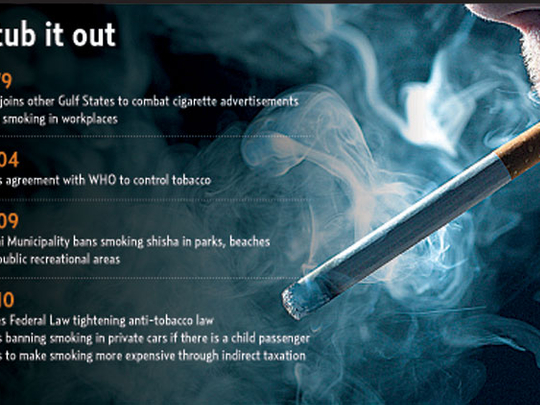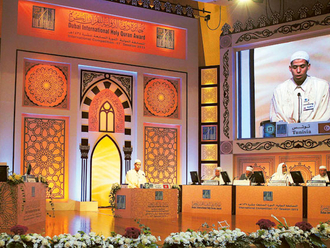
Dubai: A senior WHO (World Health Organisation) executive has called for higher taxes on cigarettes and tobacco products and to make marketing by the fast food industry more accountable.
He said just creating public smoke-free areas is not enough if the environment is not conducive to quitting smoking and cigarettes are very cheap and affordable. He said there was also a need to provide services to those who wished to quit.
Dr Ala Alawan, WHO assistant director general for non-communicable diseases and mental health, said two approaches are effective in promoting a healthy lifestyle: educating people and creating a proper environment for them.
No ban
Cigarette prices are very cheap in the GCC states, and in some Arab countries in the Mena region there is no ban on cigarette advertising. In the UAE a pack of cigarettes costs just Dh5 and health ministry officials hinted that they are finding it difficult to hike prices because of intervention of other ministries.
Dr Wedad Al Maidoor, head of the national tobacco control committee, earlier said the UAE is trying to make it expensive to smoke by imposing indirect taxation and to make it more difficult for smokers by enacting strict laws such as no smoking in private cars if there is a teen passenger.
Alwan was speaking to Gulf News on the sidelines of the recent Mena Diabetes Leadership Forum.
He said the tobacco industry will fight any government initiatives to control smoking. "We have to work hard to resist this lobby," he said.
Dr Tawfiq Khoja, director general of the GCC Health Ministers' Council, agreed implementation of tobacco control laws in the GCC states is "slow", but noted it is taking important steps as creating smoke-free areas in public places.
Tobacco lobby
The director said the tobacco industry lobby is well documented. "But the governments are stronger than these lobbies. The health of the nations is at stake," he said.
Alwan said the fast food industry should also be held accountable for their marketing which he said was geared towards children. He also called for "reformulation" of the foods to healthier products rather than include trans-fats, excessive salt and sugar.
In the US, the San Francisco board of supervisors has asked restaurants to stop offering toys with meals unless the food complied with limits on calories, sodium, sugar and fat.
Alwan said there are affordable interventions and solutions that can prevent risk factors that cause non-communicable diseases as diabetes, cardio-vascular diseases and cancers, but that legislation by many countries is still weak.
Khoja said there was a need for guidelines for the food industry to provide healthy choices for the public. He called for other ministries to be more involved.
Will people quit smoking if the prices increase? What do you think is an effective way to help someone stop smoking?












